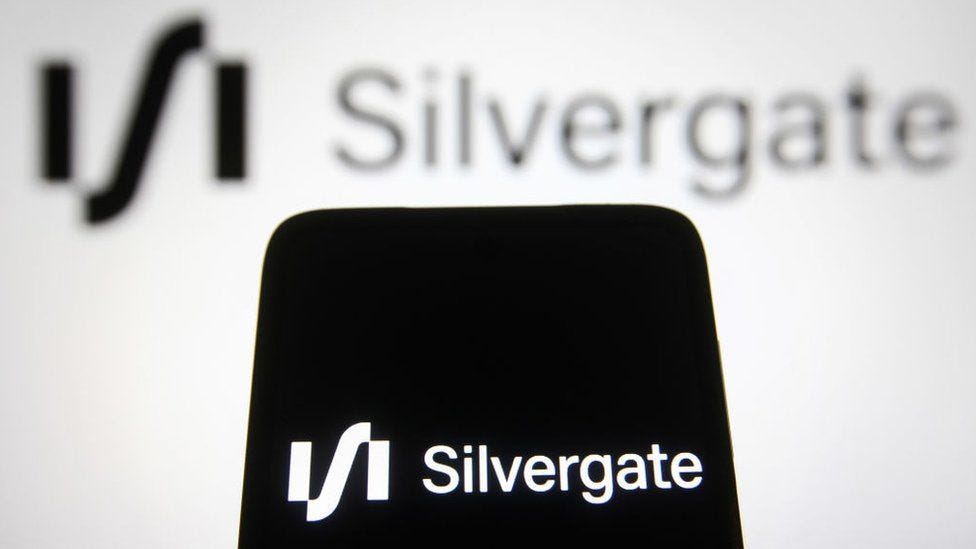
FBI names North Korean Hackers Lazarus and ATP38 in $100M Harmony Heist
Hello,
In today’s dispatch we have:
$100M Harmony Heist Solved
NFT-funded film 'Calladita' Gets An Award
From Crypto to Mortgages
The FBI finally confirmed and spilled the beans on the cyber-criminals who pulled off a digital heist last year on the US-based blockchain company Harmony's Horizon Bridge, stealing a whopping $100 million from a crypto service!
The masterminds behind the caper? As suspected, none other than the notorious North Korean hacking groups Lazarus and APT38!
Here's the story
In 2022, some clever hackers found a way to sneak into the Harmony layer-1 blockchain's Horizon Bridge and make off with a whopping $100 million in altcoins.
These stolen assets were then swapped for Ether through 11 transactions. According to London-based blockchain analysis provider Elliptic, the attackers used Tornado Cash to convert the stolen assets into 85,837 ETH.
With a Twist...
On January 13, half a year after the big heist, over $60 million worth of ETH stolen during the heist was laundered, leading law enforcement to confidently finger the Lazarus Group and APT38 as culprits.
The hackers had used a privacy protocol called RAILGUN to keep their tracks hidden. Some funds were frozen and recovered by exchanges as they tried to exchange them for Bitcoin, and the rest of the loot was sent to 11 Ethereum addresses.
North Korean Hackers' Supremacy
According to South Korea's National Intelligence Service, North Korea excels in stealing cryptocurrency and shifted its focus to cybercrime after facing stricter U.N. economic sanctions in 2017 due to its nuclear and missile tests.
North Korean hackers have stolen $1.2 billion in cryptocurrency since 2017.
DeFi platforms were targeted, earning hackers $626 million in 2022 alone.
Lazarus Group is using nearly 500 phishing domains in a phishing campaign targeting NFT investors - Reported SlowMist.
Lazarus was connected to a $622 million hack of Ethereum sidechain Ronin in March 2022.
FBI and CISA issued warning alerts about North Korean state-sponsored cyber threats targeting blockchain companies in March 2022.
Japan's National Police Agency warned crypto-asset businesses in October to be wary of the North Korean hacking group.
Behind the Scenes: Apparently North Korea is using the stolen cryptocurrency to fund its nuclear and missile programs. A United Nations report from February also highlighted the reliance of the country's missile programs on revenue from cyberattacks.
The U.S. Treasury Department also mentioned Tornado Cash's involvement in state-sponsored cyberattacks when it banned Americans from using the Ethereum coin mixer in August.
Soderbergh presents Blockchain award to NFT-funded film 'Calladita'
The world of film and blockchain has converged. The renowned director Steven Soderbergh has just presented the Blockchain Award to the NFT-funded film "Calladita". That's right, you can now watch a film and own a piece of it.
But why NFT-funded film? It's a new way to finance films. NFTs allow creators to have a new revenue stream and more control over the distribution of their work. Plus, it's a step towards a more decentralized and democratized entertainment industry.
In 2021 and 2022, other filmmakers, notably legendary directors Spike Lee and Kevin Smith, turned to digital collectibles to finance films and encourage engagement.
Instead of just purchasing a ticket, moviegoers may now own a piece of modern cinema while directly sponsoring the next Hollywood blockbuster.
“This movie started as a crazy idea in my mind that maybe I could fund my first feature through an NFT collection, and a few months later, thanks to 500 degens on the internet who believed in us and minted our NFTs, we got to make the movie,” Faus said
The world may not be quite ready to see a monkey JPEG as a valuable piece of art, but the idea of directly funding and supporting creators through NFTs may be the ignition point for a revolutionary shift in the entertainment industry. By breaking down the traditional barriers between filmmakers and their audience, NFTs could pave the way for a Web3 and Film3 revolution, where creativity and connection are fostered like never before
From Crypto to Mortgages: US Home-Loan Banks Invest Billions in Crypto Banks
The United States Federal Home Loan Banks System (FHLB) is taking a bold step into the world of crypto by lending billions of dollars to two of the largest cryptocurrency banks. According to a report from The Wall Street Journal, this move is an effort to weather the storm of a surge in withdrawals from these banks.
In the last quarter of 2022, the FHLB lent nearly $10 billion to commercial bank Signature Bank, making it one of the largest borrowing transactions by a bank in recent years. Signature Bank had previously received approval from the Department of Financial Services of New York for its blockchain-based digital platform.
But why lend to crypto banks? Crypto banks are a growing market, and lending to them allows the home-loan banks to tap into this new market and gain access to a new pool of borrowers. Plus, it's a step towards a more inclusive and diverse financial system.
Silvergate, the second bank to request funds from the FHLB, received at least $3.6 billion. During the last quarter of 2022, Silvergate experienced a significant outflow of deposits and had to take steps to maintain cash liquidity, including selling debt securities.
As the crypto industry continues to grow and evolve, all stakeholders must work together to mitigate potential risks and ensure the industry's long-term success."
















